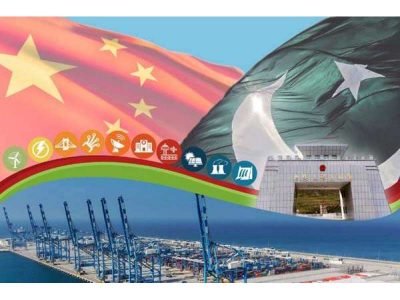Only Western Loans to Developing Countries are Allowed. US State Department Official
The US' Snide Remarks About CPEC Are Driven by Double Standards

Wells’ snide remarks were obviously driven by double standards whereby the US diplomat is making it clear that only Western loans to developing countries are allowed, not Chinese ones.
Alice Wells, the US’ Acting Assistance Secretary of State for South and Central Asia, delivered some very snide remarks about CPEC last week while speaking at the Woodrow Wilson Center. She provocatively claimed that
“Together with non-CPEC Chinese debt payment, China is going to take a growing toll on Pakistan’s economy, especially when the bulk of payment starts to come due in the next four to six years”, which earned her a stinging rebuke from Chinese Ambassador to Pakistan Yao Jing.
He retorted that
“If Pakistan is in need, China would never ask Pakistan to repay its loans in time”, adding that this contrasts with “the International Monetary Fund (IMF), which is mainly governed by the West” and is “strict in its repayment system.”
China’s chief envoy to the country also pointed out how the vast majority of Pakistan’s debt is owed to the West, not China, while questioning why it’s alright for the US to owe his country $3 trillion but Pakistan is being criticized by the Americans for owing a comparatively meager $18 billion.
Wells’ snide remarks were obviously driven by double standards whereby the US diplomat is making it clear that only Western loans to developing countries are allowed, not Chinese ones. As Ambassador Yao noted, their repayment systems are extremely strict, and countless examples exist the world over of countries entering into political crises as a consequence of the austerity measures that they’re pressured to implement as part of their IMF and other Western loan repayment programs.
Pakistani Prime Minister Khan is currently struggling to overcome his country’s systemic economic troubles that he inherited from his predecessors, but Chinese financial assistance provides a safety valve enabling Pakistan to receive long-term developmental benefits without having to worry about the same repayment pressures that accompany Western loans. This is mutually beneficial since Pakistan hosts the flagship project of the Belt & Road Initiative (BRI), the China-Pakistan Economic Corridor (CPEC), which is strategically important for both.
Pakistan receives unprecedented developmental assistance for its over 200 million people in exchange for China receiving unrestricted access to the Indian Ocean via this overland corridor that’s envisaged to facilitate global trade with the People’s Republic while allowing it to simultaneously avoid the Strait of Malacca chokepoint that might one day become unviable in the event of a crisis. It’s precisely because of the strategic significance of CPEC to both countries that the US is interested in spreading pernicious innuendo about this project.
The US wants to geostrategically “contain” China in East and Southeast Asia, but CPEC provides the People’s Republic with an opportunity to diversify its trade routes via South Asia and therefore neutralizes this plan. Washington can’t take physical action to stop CPEC, so it’s left having to rely on information warfare in the hope that it can sow enough seeds of doubt about China’s intentions so as to stymie this project. It not only wants to misportray CPEC as a “debt trap”, but also as being responsible for any future economic problems.
It’s not Chinese loan repayments that might “take a growing toll on Pakistan’s economy” in the next few years, but Western ones, though the US is preemptively trying to manufacture the weaponized notion that it and its allies would be innocent in that scenario. It instead seeks to pin the blame solely on China in pursuit of the well-known devious plan to drive a wedge between China and Pakistan. That scheme will assuredly fail, especially since Ambassador Yao discredited it by drawing attention to Wells’ double standards in his incisive retort to her.
The Pakistani people deeply appreciate their country’s decades-long strategic partnership with China and know fully well that Beijing harbors no negative intentions towards them, least of all wanting to have their government impose economic hardships on them in order to repay developmental loans and therefore counterproductively slow down CPEC as a result. China, unlike the West, is understanding of Pakistan’s economic problems, and that’s why it’s doing everything that it can to help its trusted partner.
*
Note to readers: please click the share buttons above or below. Forward this article to your email lists. Crosspost on your blog site, internet forums. etc.
This article was originally published on OneWorld.
Andrew Korybko is an American Moscow-based political analyst specializing in the relationship between the US strategy in Afro-Eurasia, China’s One Belt One Road global vision of New Silk Road connectivity, and Hybrid Warfare. He is a frequent contributor to Global Research.
Featured image is from OneWorld

